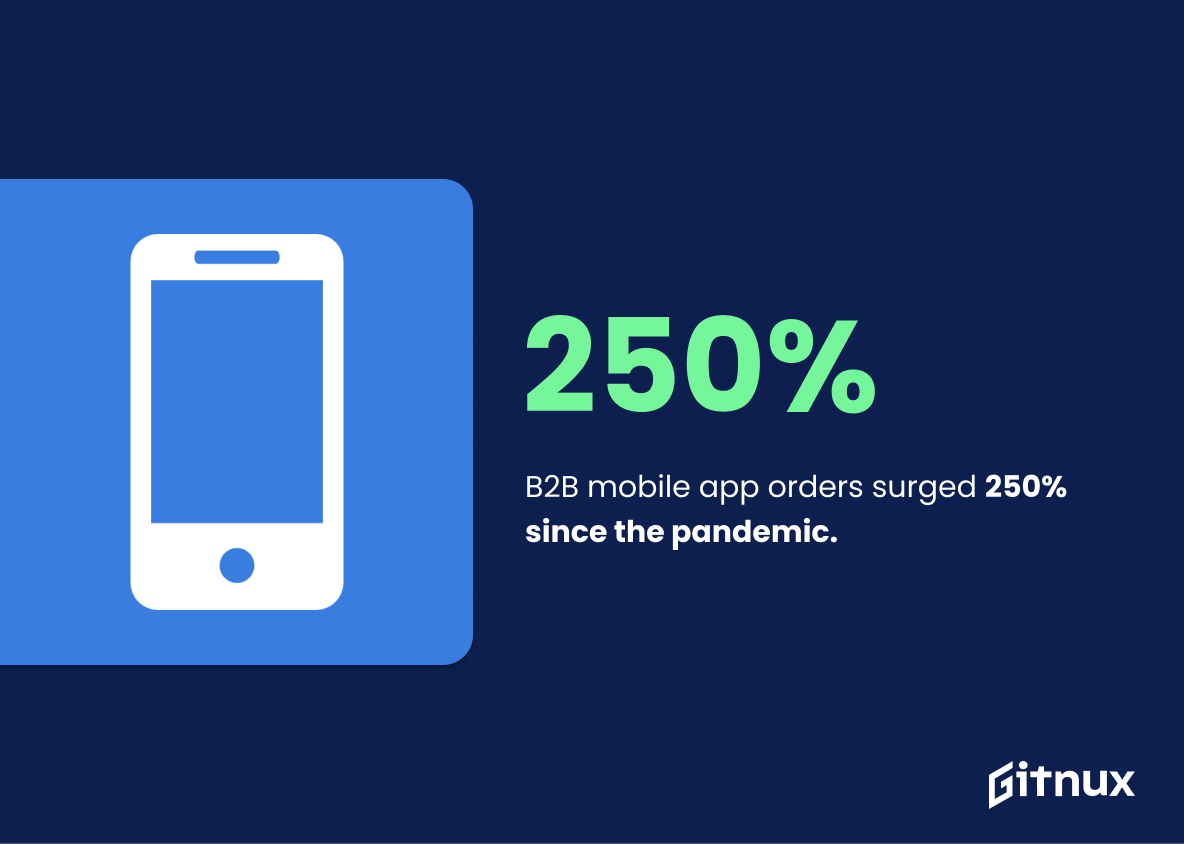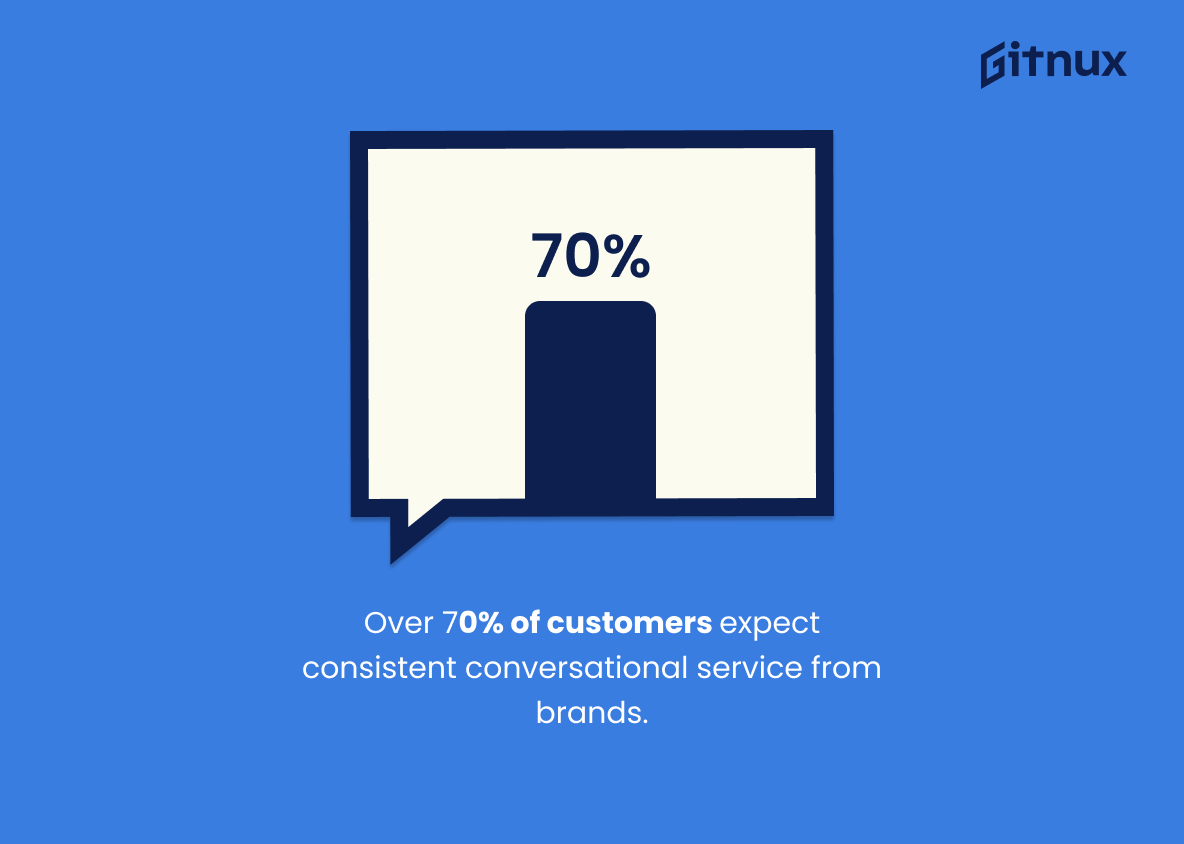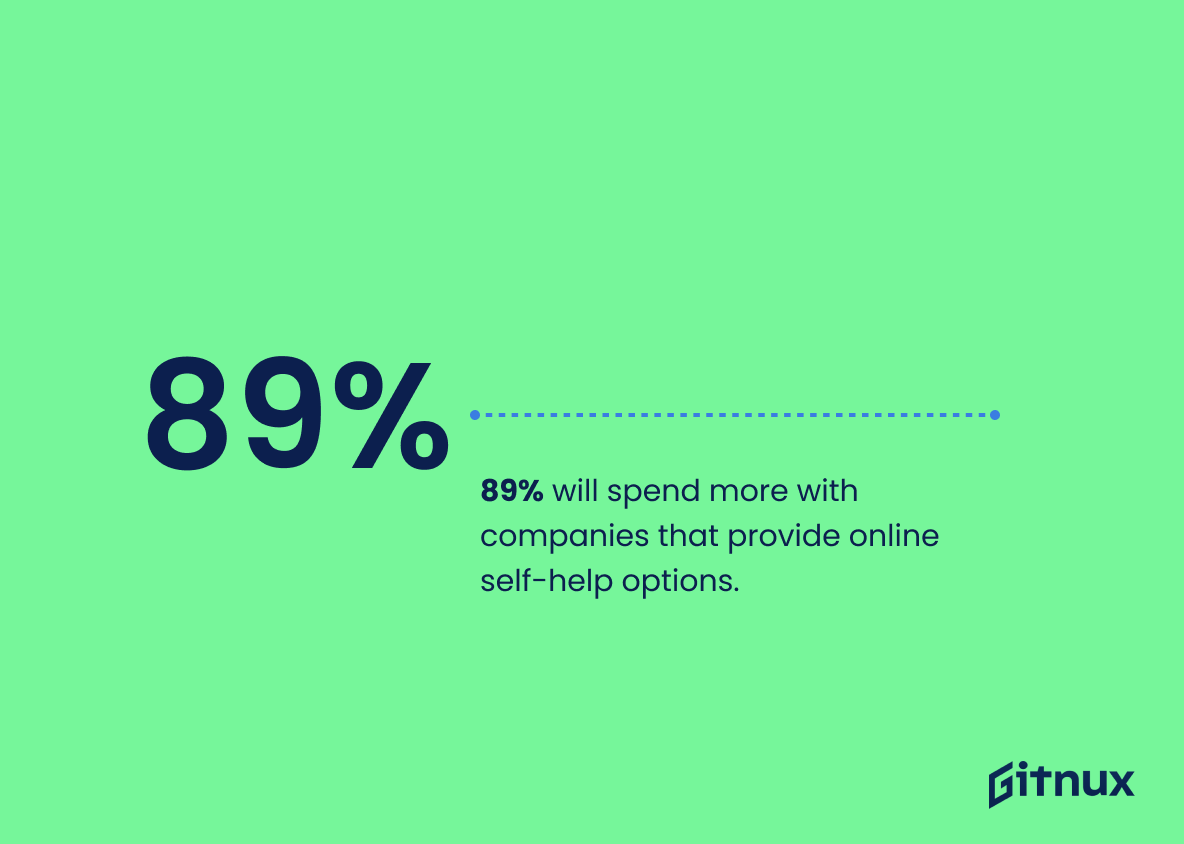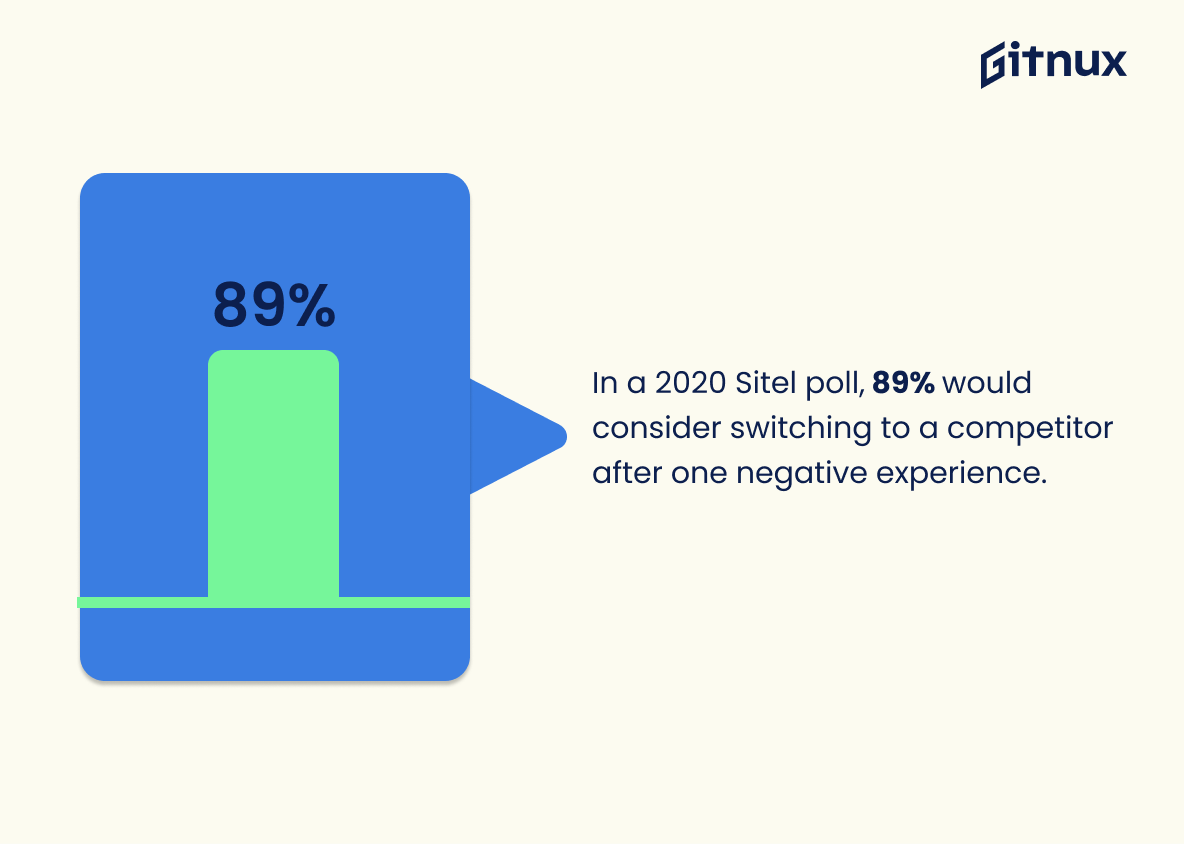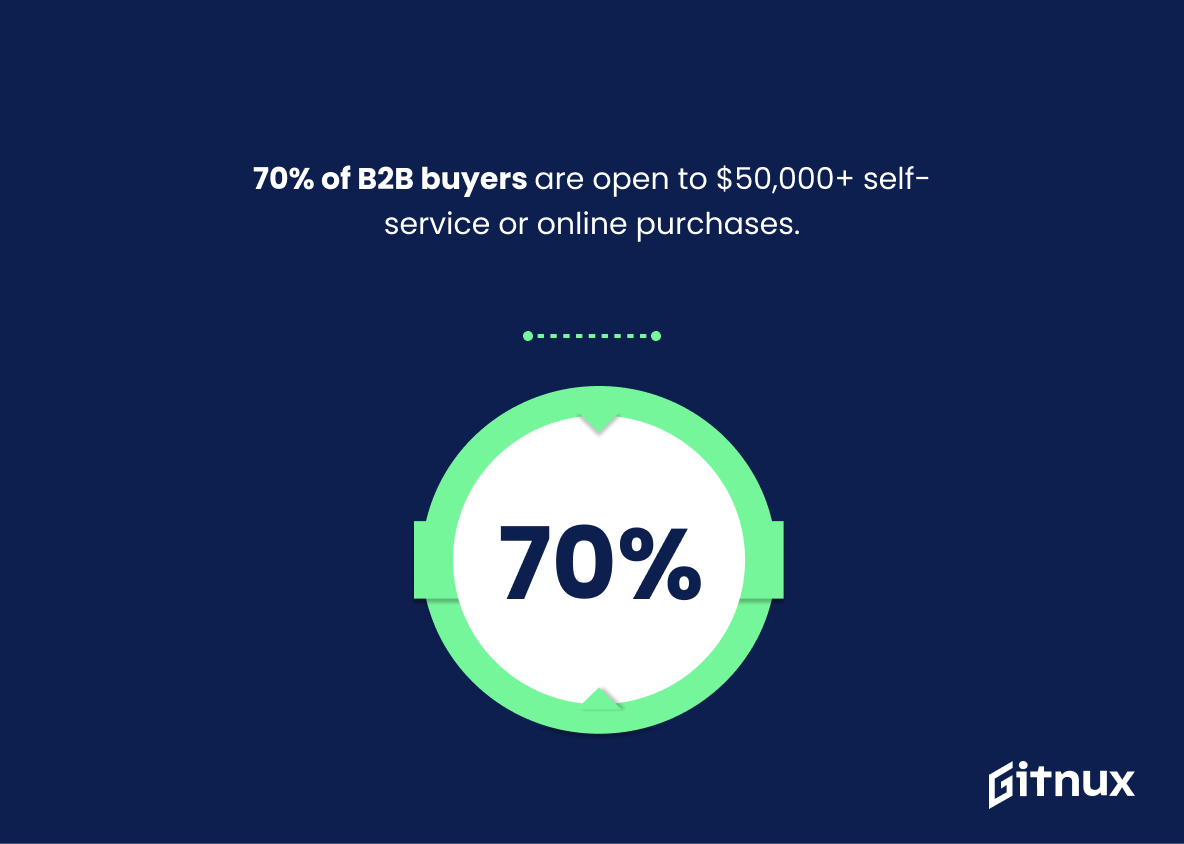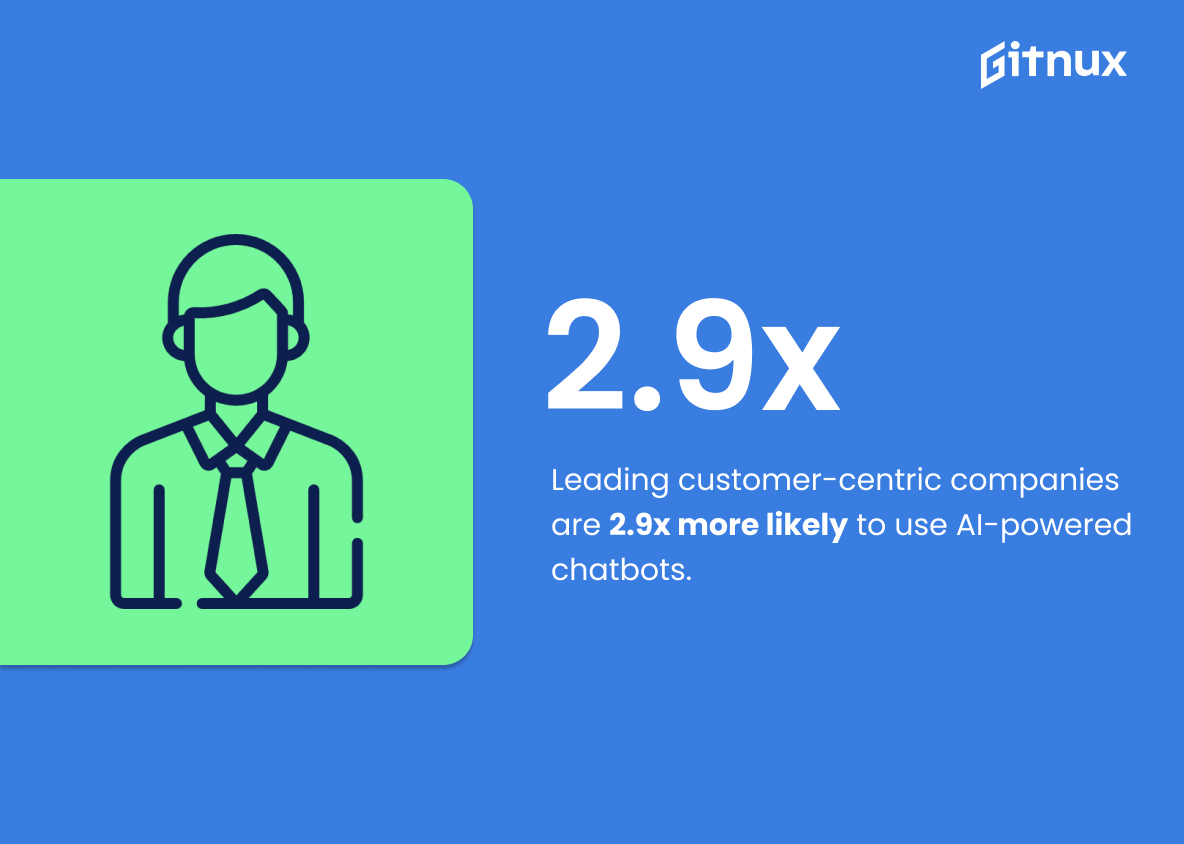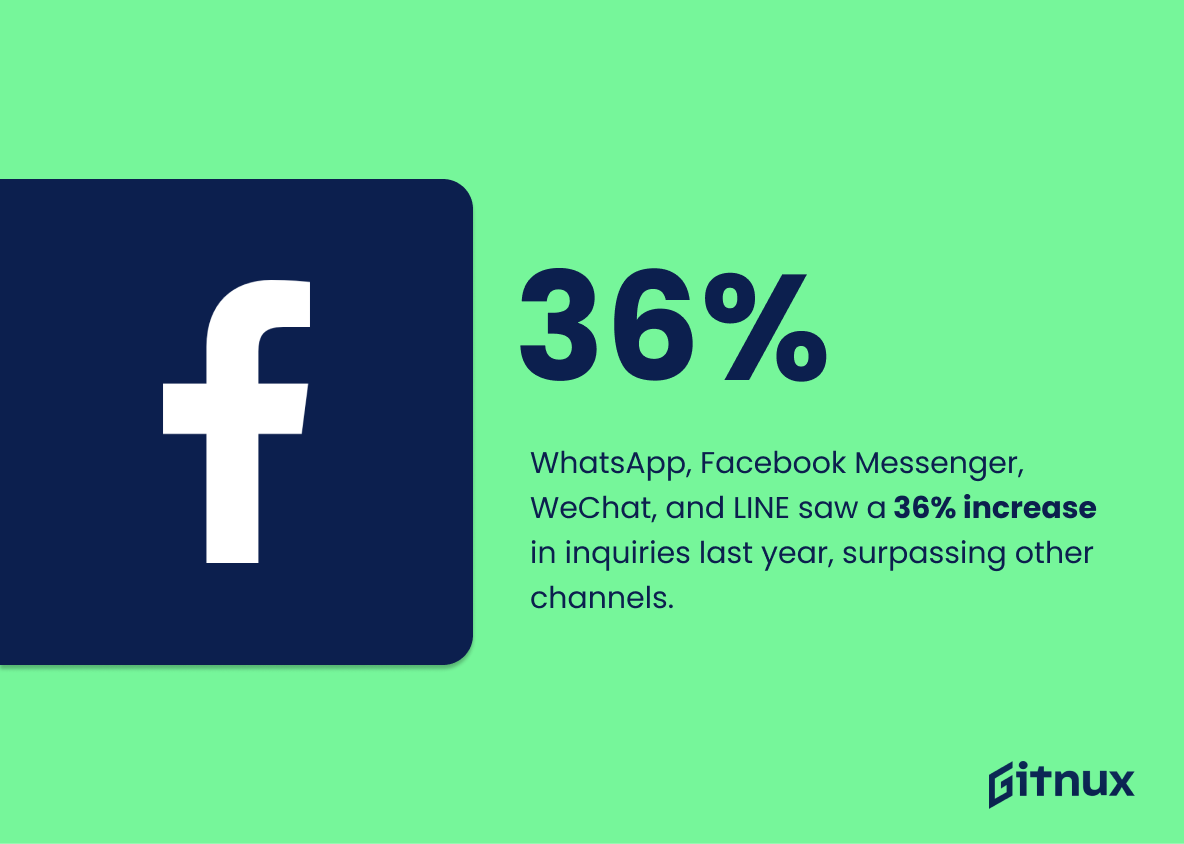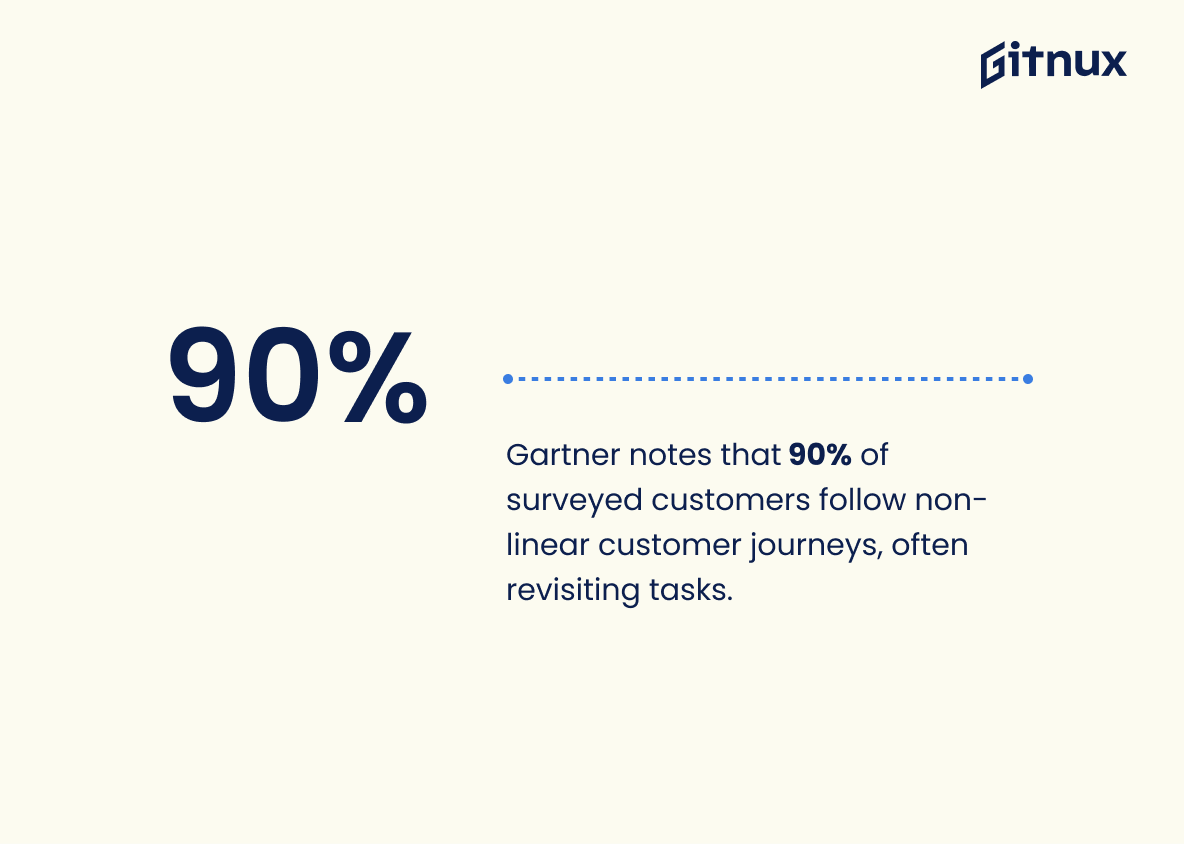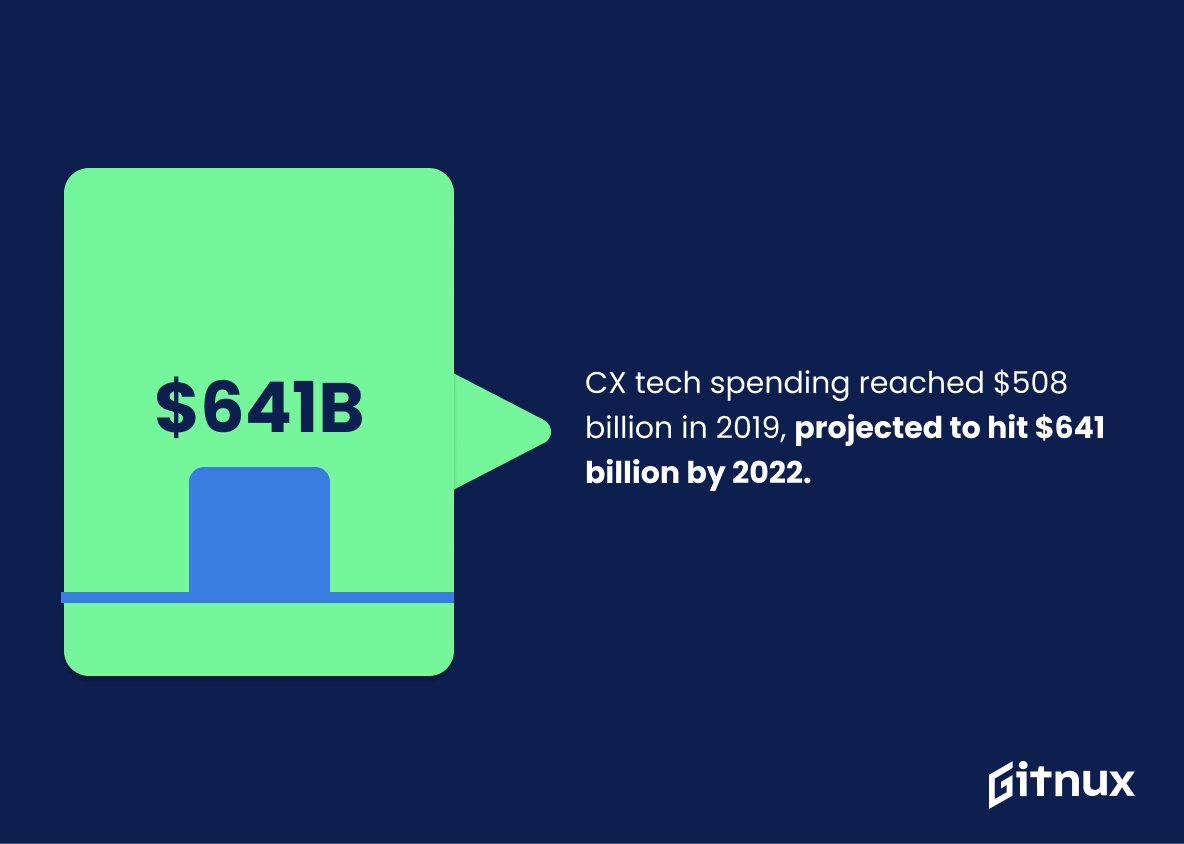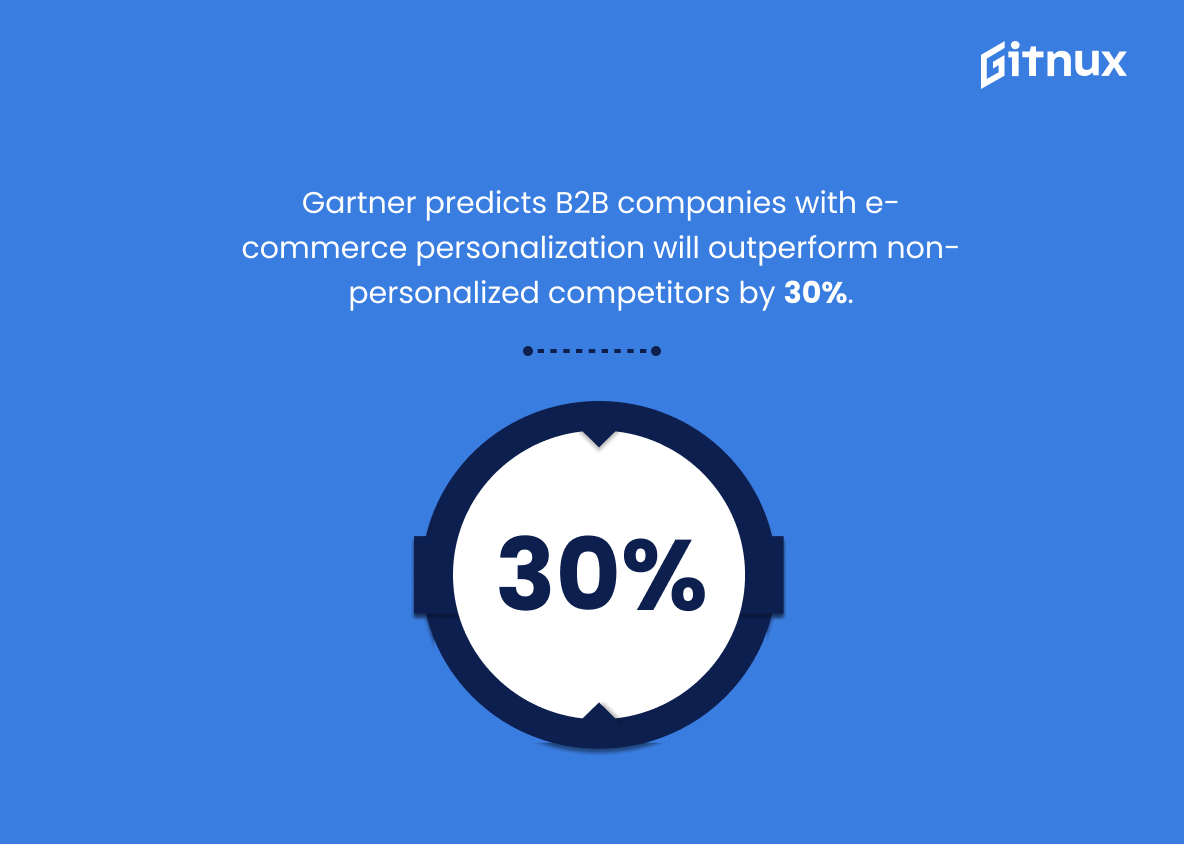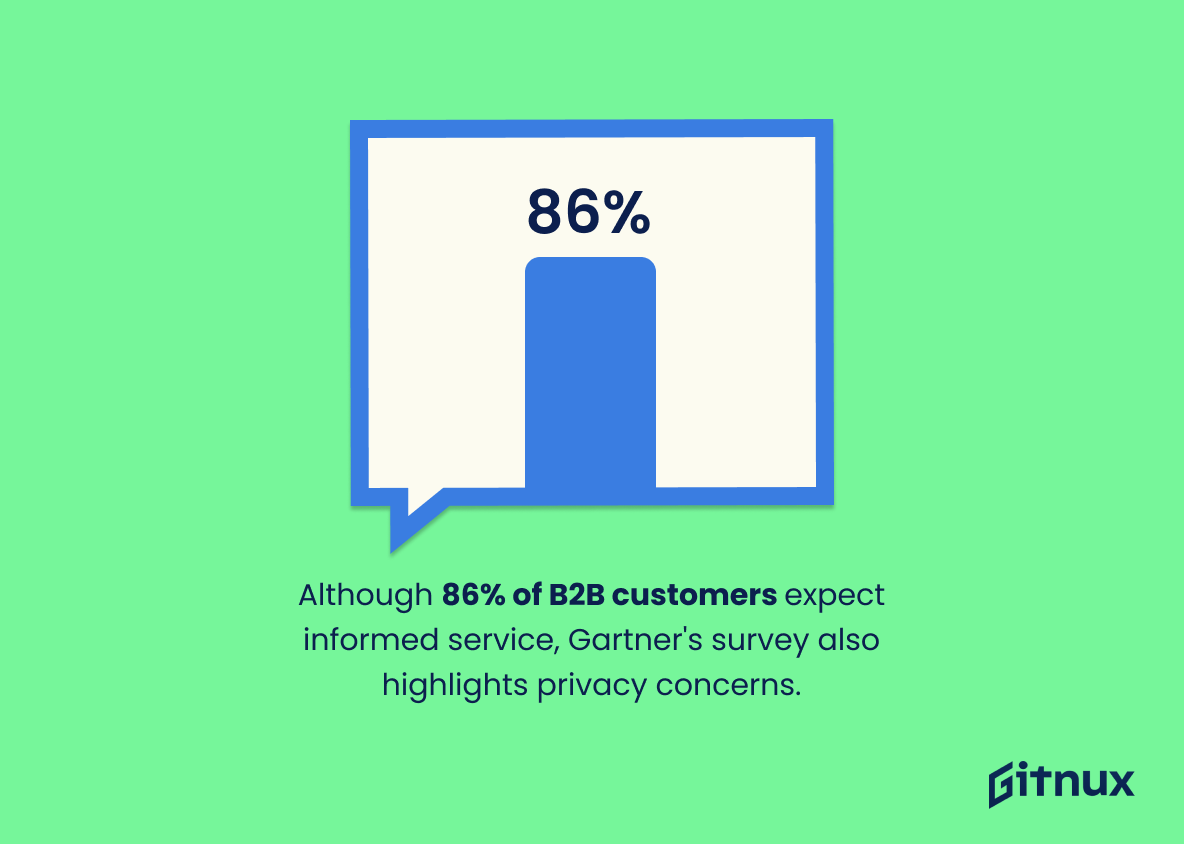Business-to-business (B2B) customer experience has become a crucial aspect of modern business. B2B customer experience statistics is a valuable tool for understanding how customers interact with businesses. By tracking customer experience metrics, businesses can gain insight into customer preferences and behaviors. This data can be used to make informed decisions about how to improve customer service, develop better products and services, and increase customer satisfaction.
In this article, we’ll explore the importance of B2B customer experience and examine the statistics that highlight its significance.
B2B Customer Experience: The Most Important Statistics
At least 80% of B2B buyers are not only looking for but expect a buying experience like that of a B2C customer.
86% of buyers are willing to pay more for a great customer experience.
Current Situation Of B2B Customer Experience
Back in the old days, B2B sales were usually maintained by interpersonal ties. Now that B2B buyers have witnessed and experienced the ease of use and purchase through digital channels, things have changed.
B2B mobile app ordering increased by 250% since before the pandemic.
B2B customer experience is now critical for building strong and long-lasting relationships with customers and maintaining a competitive edge in the market.
Over 70% of customers expect conversational service every time they engage with a brand.
More than 60% of customers report that they now have higher customer service standards after the past year’s crisis, with customer engagement is 14% up compared to last year.
93% of customers will spend more with companies that offer their preferred option to reach customer service (e.g. chat).
92% of customers will spend more with companies that ensure they won’t need to repeat information, and 90% will spend more with companies that personalize the customer service they offer them.
89% will spend more with companies that allow them to find answers online without having to contact anyone.
Why Does B2B Customer Experience Matter?
Statistics show that B2B customer experience is critical for businesses.
According to a study by PWC, 86% of buyers are willing to pay more for a great customer experience. Additionally, at least 80% of B2B customers expect a B2B experience that is as good or better than B2C, demonstrating the high expectations that customers have for their business interactions.
A good B2B customer experience can bring large benefits to a company such as increased customer loyalty, higher customer satisfaction, and improved customer retention.
A poll by Sitel in 2020 finds that 89% of the respondents are likely to switch to a competitor after a single negative experience.
Also, 73% of buyers believe that the overall experience with a company is as important as its products/services.
Companies that prioritize customer experience are 60% more profitable than their competitors.
The Impact Of Technology On B2B Customer Experience
Following the pandemic, technology has dramatically changed the way businesses interact with their customers, and B2B customer experience is no exception.
A study by Salesforce discovered 58% of consumers believe technology has improved the overall customer experience. This includes self-service options, instant support, and access to real-time information.
McKinsey found that B2B companies which showed the highest revenue growth were 62% more effective at using technology to support the sales process.
Check out our latest B2B Marketing Statistics
They also found 70% of B2B buyers are willing to make new purchases over $50,000 through self-service or online channels.
Customer experience agents are 9.9x more likely to be extremely satisfied with their workflows with AI-powered tools.
Companies that are ahead of the customer experience curve are 2.9x more likely to use AI-powered chatbots to help with agent workflow.
Research by Mckinsey shows that the retention levels for B2B brands were twice as likely to drop when the speed of interactions was low compared to when prices were high.
In addition, technology like omni channels is also playing a big role in the CX world. In the recent study by Forrester – “Building The B2B Omni-Channel Commerce Platform Of The Future”, it was discovered that almost three-quarters of B2B buyers consider the ability to look up product information across any channel to be important or very important when making work-related purchases online.
Customer Experience Challenges Facing B2B Companies
While technology has revolutionized B2B customer experience, companies still face numerous challenges in delivering exceptional experiences.
Many B2B companies struggle to gather customer insights, which makes it difficult to personalize the customer experience.
Although 86% of B2B customers expect companies to be well-informed about their personal information during a service interaction, Gartner’s survey found that customers also expect their data to remain private and secure, and to be used solely for its intended purpose.
The complexity of customers’ journey also makes it challenging for B2B companies in integrating different customer touchpoints.
According to Gartner, 90% of survey customers do not follow a straightforward customer journey, often looping back and repeating at least one or more tasks in the buyer journey.
Many B2Bs are also stuck at the data collection and analysis stage. Several B2B organizations face the dire challenge of retrieving customer data, while 95% of businesses with access face an urgent need to structure their data in a meaningful way.
In a poll conducted by Bain & Company with organizations about their CX, 80% believed they were delivering a high-quality experience. However, when B&C surveyed these organizations’ customers, only 8% said they agreed.
The Future Trends Of B2B Customer Experience
In the future, B2B customer experience is expected to play an even more critical role in driving business success.
By 2019, the budget spent on CX technologies has reached $508 billion and was expected to reach $641 billion by 2022.
More than half of B2B businesses surveyed (56%) are making better B2B customer experiences the top business priority in the coming year.
Gartner has predicted that B2B companies with e-commerce personalization will outsell by 30% of competitors that are not providing a personalized experience.
26% of companies have allocated a quarter or more of their customer service tech budget to AI, and 43% plan to spend up to a quarter more in the next year.
There’s also an increase in the number of customers using social messaging apps to connect with companies.
Enquiries over WhatsApp, Facebook Messenger and regional favorites like WeChat or LINE jumped 36% last year — higher than any other channel.
Conclusion
In conclusion, B2B customer experience is a critical aspect of modern business and a key factor in building strong and long-lasting relationships with customers. The statistics show that B2B customers are more likely to remain loyal to companies that provide them with a great customer experience, and that companies that do not prioritize customer experience are more likely to lose customers. Companies should take note of this and ensure that they are providing their customers with the best possible experience in order to increase customer loyalty and satisfaction.
Supplementary Statistics
By 2020, customer experience will overtake price and product as the key brand differentiator.
As customers become increasingly savvy and informed, they are no longer solely focused on price and product when making purchasing decisions. Instead, they are looking for a holistic experience that meets their needs and expectations. As such, companies must prioritize customer experience if they want to stand out from the competition and remain competitive in the long run.
75% of B2B buyers said that customer experience is a very important factor when making purchasing decisions.
The majority of buyers prioritize customer experience when making purchasing decisions, which means that businesses must prioritize customer experience in order to remain competitive. This statistic is a clear reminder that customer experience should be a top priority for any business looking to succeed in the B2B market.
Companies that focus on B2B customer experience have a 24% higher annual growth rate than other companies.
Companies that prioritize customer experience are reaping the rewards in terms of increased annual growth. This is an important reminder for businesses that investing in customer experience is a worthwhile endeavor.
In a B2B Digital Experience Survey, 73% of B2B executives said that customer expectations for personalized experiences are much higher today than they ever have been before.
Customers now expect a much higher level of personalization than ever before, and that businesses must be prepared to meet these expectations if they want to remain competitive. This is an important point to consider when discussing B2B customer experience statistics, as it highlights the need for businesses to stay ahead of the curve and provide customers with the personalized experiences they demand.
On average, loyal B2B customers are worth up to 10 times as much as their initial purchase.
This highlights the importance of providing a positive customer experience that encourages customers to return and make repeat purchases. By investing in customer experience, businesses can reap the rewards of increased customer loyalty and long-term profitability.
Only 23% of B2B marketers claim to have a customer-centric approach in their organization.
This highlights the need for organizations to prioritize customer experience and recognize the importance of understanding their customers’ needs and preferences. Without a customer-centric approach, B2B marketers risk missing out on opportunities to build relationships with their customers and create a positive customer experience.
For 53% of B2B companies, the customer experience management strategy is one of their top priorities.
A majority of companies recognize the value of providing a positive customer experience and are actively investing in strategies to ensure their customers are satisfied. This highlights the need for businesses to prioritize customer experience in order to remain competitive and successful.
Only about 50% of B2B marketers have a customer experience management process in place.
This highlights the need for businesses to prioritize customer experience and invest in the necessary processes to ensure that their customers are receiving the best possible service. By doing so, businesses can increase customer satisfaction, loyalty, and ultimately, their bottom line.
By 2022, 50% of all B2B shopping will take place online, making the digital customer experience increasingly more important.
With half of all B2B shopping taking place online, businesses must ensure that their digital customer experience is up to par in order to remain competitive. This statistic serves as a reminder that businesses must prioritize the digital customer experience in order to stay ahead of the curve.
B2B organizations with highly engaged customers experience up to a 55% increase in revenue.
By understanding the value of customer engagement, B2B organizations can take steps to ensure that their customers are highly engaged and, in turn, reap the rewards of increased revenue.
Oracle found that for 84% of B2B organizations, the most significant barrier to delivering a seamless customer experience is a lack of visibility.
This lack of visibility can lead to delays, confusion, and frustration, all of which can have a negative impact on customer satisfaction. By understanding this statistic, B2B organizations can take steps to improve their visibility and ultimately provide a better customer experience.
62% of B2B organizations plan to implement artificial intelligence to improve the customer experience.
They are willing to invest in the technology to provide customers with a more personalized and efficient experience. This is an important step in the right direction for B2B organizations, as it demonstrates their commitment to providing customers with the best possible experience.
B2B companies lose about $1.6 trillion annually due to poor customer experiences.
This serves as a powerful reminder of the importance of investing in customer experience initiatives, as the potential rewards are far greater than the costs. It also highlights the need for B2B companies to prioritize customer experience in order to remain competitive in the market.
A 5% increase in B2B customer retention can lead to a 25-95% increase in profits.
Even a small increase in customer retention can have a dramatic impact on profits, making it a key factor in the success of any B2B business.
More than 53% of B2B customers find it easier to find information on the internet than contacting a sales representative.
Customers are increasingly turning to the internet for information, rather than relying on sales representatives. This highlights the need for businesses to ensure their online presence is up to date and informative, as it is becoming the primary source of information for customers.
References:
Qualtrics: “ROI of Customer Experience, 2018”, cited in February 2023 (Source)
Intelligent CIO: “20 important statistics about the B2B customer experience”, cited in February 2023 (Source)
Lumoa: “5 Trends In B2B Customer Experience Management”, cited in February 2023 (Source)
PWC: “Experience is everything: Here’s how to get it right”, cited in February 2023 (Source)
Linkedin: “How Has B2B CX Changed? These 5 Statistics Will Tell You”, cited in February 2023 (Source)
Zippia: “25 Must-know Customer Experience Statistics [2023]”, cited in February 2023 (Source)
Sitel: “CX Appeal: What is the Role of Customer Experience in Purchasing Decisions?”, cited in February 2023 (Source)
Salesforce: “Understanding the Digital Customer Experience”, cited in February 2023 (Source)
McKinsey: “By the numbers: What drives sales-growth outperformance”, cited in February 2023 (Source)
Zendesk: “Zendesk Customer Experience Trends Report 2020”, cited in February 2023 (Source)
Zendesk: “CX TRENDS 2022: Unlock growth with emerging capabilities”, cited in February 2023 (Source)
Zonka: “Everything About the Prominent Customer Experience Challenges in B2B With Solutions”, cited in February 2023 (Source)
Soocial: “21 B2B Customer Retention Statistics That Matter”, cited in February 2023 (Source)
ZipDo, cited June 2023: B2B Customer Experience Statistics
